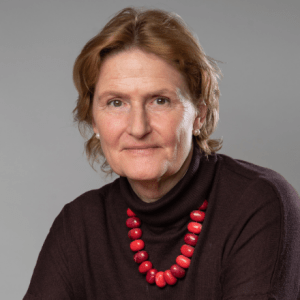This month, Veronica Swindale, MD of nesma, met with Kate Simpson, MBE, Executive Coach for Northern Insight Magazine. Kate runs a coaching business in the North East aimed at helping manufacturing leaders to win at work by developing personal strategies to work smarter, not harder.
What does working smarter mean in practice?
In my experience, very capable managers often get in their own way. This is particularly true when they are very busy, under pressure, or dealing with difficult external issues such as labour shortages.
We work on what I call the four elements of success. Firstly, how we look after ourselves: for example, how we manage to exercise, eat well, and spend time with the people who are important to us. Next, we work on what we need to do to clarify our jobs and clearly understand what we get measured on. Thirdly how we manage ourselves: this often includes things like controlling our email mountains, prioritising, and managing our time and energy. We can then concentrate on the fourth element, what do we need to do to become a high-performing leader leading a high-performing team.
We also often work on skills that I would call ‘quick wins’, such as planning, preparing, and becoming experts in our work.
I know that you have recently completed an MA in Coaching at the University of Northumbria and that as part of that degree, you have done some detailed research into how we connect online. Can you tell me a little more about that?
My research looked at how coaches build rapport and how that changed when we moved online in 2020. To summarise my findings in one short phrase, I found that ‘it is the same but different’.
Specifically, when working online, we still use the same essential skills to build rapport. We work to build the belief in our clients that our work is client-focused and will deliver results for them. You can distil these actions into four key activity groups: pre-coaching actions, nonverbal cues, verbal cues and managing the physical coaching environment.
The differences moving online could be categorised into several key themes. Namely adjusting our basic rapport building skills to accommodate the differences between face-to-face and the online environment, managing technology, paying attention to coach and
client issues (such as breaks and start-up rituals) and being creative in replacing lost physical coaching tools.

You were awarded the MBE in the Queen’s Birthday Honours List 2020. What was that for, and how did the pandemic impact it?
The award was for voluntary service to the Armed Forces. I have been involved with the North of England Reserve Forces and Cadets Association since 2005. The NE-RFCA is the organisation that provides important links between our military forces and the local community. It raises awareness of the benefits to the country, employers, and individuals of both the Reserve and Cadet Forces.
My role as Vice-Chair, Engagement has included providing a civilian perspective on the significant work we do and contributing to our work over the years to influence individual, employer, and government approaches to reservists and cadets.
Being awarded the MBE was the experience of a lifetime. The pandemic delayed the announcements; the ceremonies were moved from Buckingham Palace to Windsor Castle and made more Covid friendly. The day I received my award was both very intense and a bit of a blur, with the highlights including being in the State Rooms in Windsor Castle, meeting Princess Anne and going to Eton for a glass of fizz to celebrate.
What do you think have been the major benefits and drawbacks of everyone working online over the past two years?
From a coaching perspective, my research found that the move online was far more straightforward than many expected.
Coaching online has proved to have its own advantages, which have included both the obvious benefits, such as reduced travel time and the less obvious, such as the fact that, managed carefully, online coaching can be more confidential and intimate than traditional coaching.
Personally, though, I believe we gain from connecting with one another face to face, which is what we have lost and will continue to lose if we stay exclusively online.
So, what should we aim to do differently moving forward?
I firmly believe that our best future is hybrid. We need to find ways to take what we have learned about connecting electronically and combine it with the power of working together to get the best of both worlds.
Reading this may have sparked your interest to look for personal development opportunities. You will find the CIM Marketing Leadership Programme is a postgraduate level course that encourages creative and strategic thinking to respond positively and innovatively to market challenges. It is suitable for senior marketers and managers, business owners and consultants.

